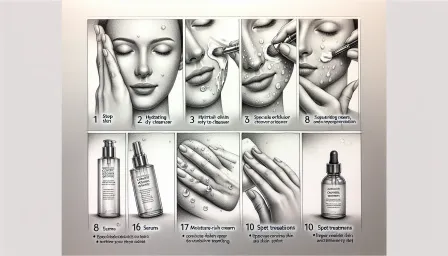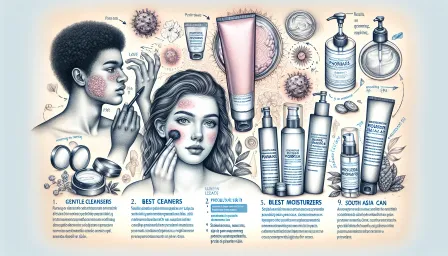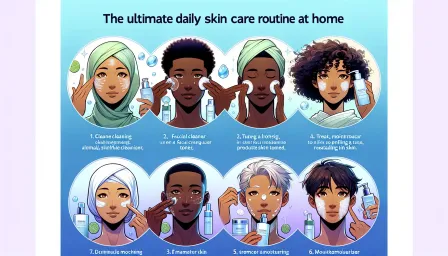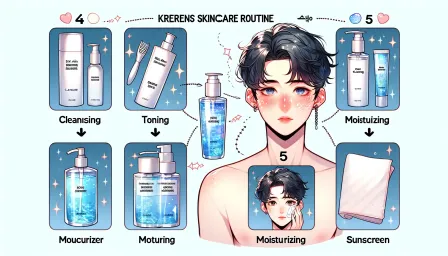The Ultimate PCOS Skincare Guide: Tips for Clear and Healthy Skin
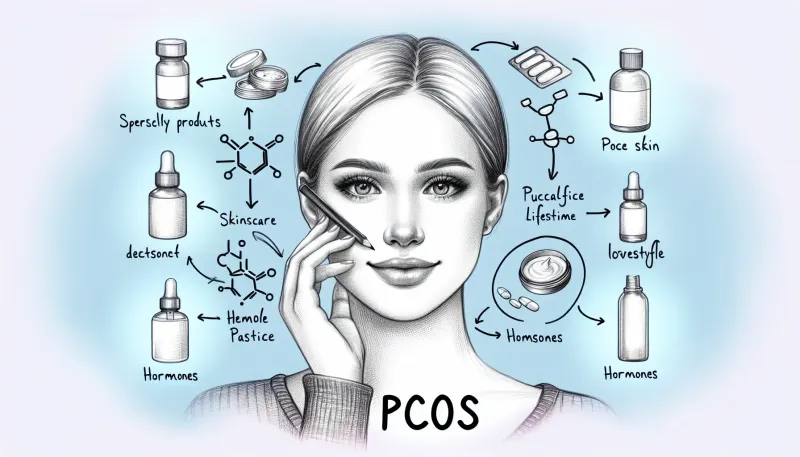
Discover expert tips and advice for achieving clear and healthy skin while managing PCOS (Polycystic Ovary Syndrome) with our comprehensive skincare guide.
Polycystic Ovary Syndrome (PCOS) is a condition that affects many women worldwide. One of the commonly reported issues associated with PCOS is problematic skin. The hormonal imbalances caused by PCOS can lead to acne, oily skin, and other dermatological concerns. This guide aims to provide valuable insights and practical tips for managing PCOS-related skin issues, helping you achieve clear and healthy skin.
Understanding PCOS and Its Impact on Skin
PCOS is a hormonal disorder that can cause enlarged ovaries with small cysts on the outer edges. The condition often leads to a series of symptoms, including irregular menstrual cycles, weight gain, and skin problems. The excess production of androgens (male hormones) is a primary culprit behind skin issues like acne and excessive oiliness.
Common Skin Problems Associated with PCOS
Individuals with PCOS can experience a variety of skin problems, including:
- Acne: Increased androgen levels can stimulate the sebaceous (oil-producing) glands, leading to acne outbreaks.
- Oily Skin: The excess oil production can leave the skin greasy and prone to blocking pores.
- Hirsutism: Excessive hair growth on the face and body is another common symptom of high androgen levels.
- Skin Discoloration: Areas of darkened skin, known as acanthosis nigricans, can appear on the neck, armpits, or groin.
Effective PCOS Skincare Tips
Managing skin issues related to PCOS requires a comprehensive approach that includes a combination of medical treatment, skincare routine, and lifestyle changes. Here are some expert tips to help you achieve clearer, healthier skin:
1. Consult a Dermatologist
Before starting any skincare regimen, it’s important to consult a dermatologist. They can provide a personalized treatment plan based on your skin type and the specific issues related to PCOS. Treatments may include prescription medications such as topical retinoids, oral contraceptives, or anti-androgen drugs.
2. Adopt a Gentle Skincare Routine
Using harsh skincare products can exacerbate skin issues. Instead, opt for gentle, non-comedogenic products that won’t clog pores or irritate the skin. Look for cleansers, moisturizers, and sunscreens specifically formulated for sensitive or acne-prone skin.
3. Maintain Proper Hygiene
Keeping the skin clean is crucial, especially if you have oily skin. Wash your face twice daily with a gentle cleanser to remove excess oil, dirt, and makeup. Avoid scrubbing your skin too hard as it can cause irritation and worsen acne.
4. Manage Hormonal Imbalances
Since PCOS is a hormonal disorder, managing hormone levels can help improve skin health. This might include lifestyle changes such as maintaining a balanced diet, exercising regularly, and reducing stress. Certain supplements like inositol and vitamin D have shown promise in balancing hormone levels in PCOS patients.
5. Use Targeted Treatments for Acne
If you’re struggling with acne, incorporate acne treatment products with ingredients like salicylic acid, benzoyl peroxide, or tea tree oil. These ingredients can help reduce inflammation, kill bacteria, and unclog pores. Always follow the instructions on the product label and avoid overusing these treatments.
6. Incorporate Anti-Inflammatory Foods
Diet plays a significant role in skin health. Incorporate anti-inflammatory foods such as leafy greens, fatty fish, nuts, and berries into your diet. These foods can help reduce inflammation and improve the skin’s overall appearance.
7. Avoid Picking or Squeezing Pimples
Picking or squeezing pimples can lead to scarring and further inflammation. If you have a pimple that’s bothering you, use a spot treatment or consult your dermatologist for safe extraction methods.
Additional Skincare Advice for PCOS
Regular Exfoliation
Exfoliating the skin helps remove dead skin cells and prevent clogged pores. However, it’s important to use a gentle exfoliant to avoid irritation. Aim to exfoliate 1-2 times per week with a product suitable for sensitive skin.
Stay Hydrated
Drinking plenty of water is essential for maintaining healthy skin. Adequate hydration helps flush out toxins and keep the skin looking plump and youthful.
Protect Your Skin from Sun Damage
Sun exposure can worsen skin issues and increase the risk of pigmentation. Always use a broad-spectrum sunscreen with at least SPF 30, even on cloudy days. Reapply every two hours if you’re spending an extended period outside.
Conclusion
Managing PCOS-related skin issues can be challenging, but with the right approach and skincare routine, you can achieve clearer and healthier skin. Consult a dermatologist, be consistent with your skincare regimen, and make necessary lifestyle changes to manage hormonal imbalances. Remember, patience and persistence are key when dealing with chronic skin conditions. Stay informed, take care of yourself, and you’ll be well on your way to healthier skin.
For more advice and information on managing PCOS and improving skin health, consider joining support groups or consulting healthcare professionals who specialize in PCOS.








